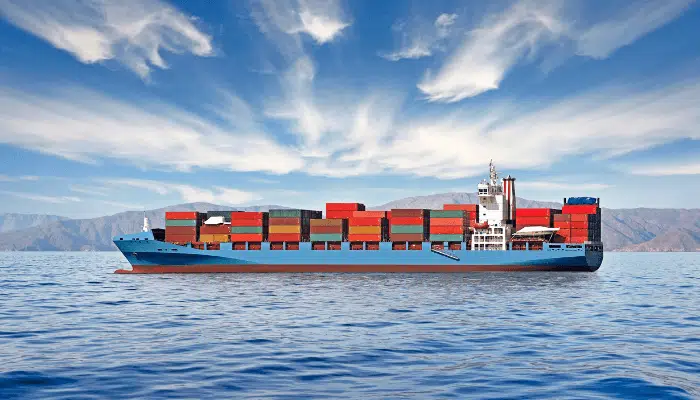Contents
In the contemporary interconnected global economy, the efficient management of supply chains holds paramount importance in the success of businesses spanning diverse sectors. A pivotal constituent within this intricate web is fulfilled by sea freight forwarders.
These entities, operating within the domain of oceanic transportation, constitute third-party logistics facilitators specializing in the coordination of merchandise movement through maritime routes. Their expertise encompasses the complexities of international shipping, adherence to customs protocols, meticulous documentation, and the nuances inherent in disparate port operations.
Their responsibilities transcend mere conveyance, assuming the role of conductors overseeing the entirety of the shipping process, and harmonizing various stakeholders to ensure the fluid progression of commodities. In this article, we will discuss the multifaceted contributions of sea freight forwarders within the sphere of supply chain management.
Role of Sea Freight Forwarders
Efficient Route Planning and Carrier Selection
One of the fundamental responsibilities of sea freight forwarding services is to determine the most efficient and cost-effective shipping routes for their clients. They consider factors such as distance, transit times, port congestion, and potential weather disruptions to optimize route planning. Moreover, they leverage their extensive networks to select reliable ocean carriers that align with the specific requirements of the shipment, ensuring timely deliveries while minimizing risks.
Documentation and Customs Compliance
Navigating the sea freight industry involves a labyrinth of documentation and customs compliance. Freight forwarders excel in handling these complexities. They prepare and manage the necessary paperwork, such as bills of lading, certificates of origin, and customs declarations. Ensuring accurate documentation is vital to prevent delays, fines, and potential legal issues. Forwarders’ expertise in customs regulations and procedures ensures that shipments adhere to international trade laws, enhancing the efficiency of the supply chain.
Cargo Consolidation and Deconsolidation
Freight forwarders play a pivotal role in optimizing cargo space by offering consolidation and deconsolidation services. Consolidation involves combining multiple smaller shipments into a single larger one, optimizing container space and reducing costs. On the other hand, deconsolidation involves breaking down larger shipments into smaller ones facilitating distribution upon arrival. The ocean freight services enable businesses to benefit from economies of scale, ultimately leading to cost savings.
Risk Management and Insurance
The sea freight industry is not devoid of risks, ranging from natural disasters and piracy to damages during transit. To mitigate these risks, forwarders offer insurance options that safeguard the value of the goods being transported. They assess the nature of the cargo, the shipping route, and potential vulnerabilities and provide insurance solutions that provide peace of mind to shippers. In the unfortunate event of mishaps, the forwarder assists in the claims process, minimizing financial losses for the parties involved.
Real-time Tracking and Visibility
In the era of data-driven decision-making, sea freight forwarders offer advanced tracking and visibility solutions. These solutions enable shippers to monitor the progress of their shipments in real time, providing accurate information about the location, estimated arrival times, and potential delays. Such transparency empowers businesses to proactively address any disruptions, manage customer expectations, and optimize inventory and distribution plans.
Warehousing and Distribution
Beyond the port, international ocean freight shipping companies also manage warehousing and distribution aspects of the supply chain. Upon arrival, they coordinate the efficient movement of goods from the port to designated warehouses. These warehouses serve as temporary storage points before the products are dispatched to their final destinations. Forwarders’ expertise in warehousing ensures that inventory is managed effectively, reducing storage costs and facilitating just-in-time deliveries.
Collaboration and Communication
Effective supply chain management thrives on collaboration and communication among various stakeholders. Sea freight forwarders act as the linchpin, fostering effective communication between shippers, carriers, customs officials, and other intermediaries. Their role in coordinating the efforts of these diverse parties ensures that the supply chain operates seamlessly, minimizing bottlenecks and delays.
Flexibility and Scalability
Businesses often face fluctuations in demand, requiring flexibility and scalability within their supply chain operations. Sea freight forwarders are adept at adjusting to these dynamic shifts. They offer solutions that align with changing requirements, whether it’s adapting to varying shipment volumes or accommodating specific delivery schedules. This flexibility allows businesses to respond effectively to market changes without compromising on operational efficiency.
Environmental Sustainability
In an era of heightened environmental consciousness, sea freight forwarders are increasingly focusing on sustainable practices. They explore eco-friendly shipping options, optimize routes to reduce emissions and promote responsible packaging and transportation methods. By integrating sustainability into their operations, forwarders contribute to a greener supply chain, meeting the expectations of environmentally conscious consumers and regulatory standards.
Conclusion
In the intricate web of global supply chains, sea freight forwarders stand as indispensable players, bridging the gap between manufacturers and consumers across continents. Their multifaceted role encompasses route planning, documentation management, risk mitigation, real-time tracking, and fostering collaboration among stakeholders.
Sea freight forwarders contribute to the efficiency, reliability, and cost-effectiveness of supply chain operations, enabling businesses to thrive in a competitive global marketplace. As the world continues to evolve, their role will remain pivotal in shaping the future of international trade and commerce.



